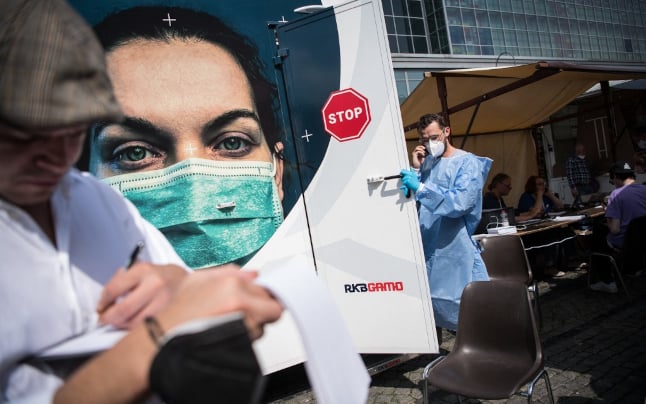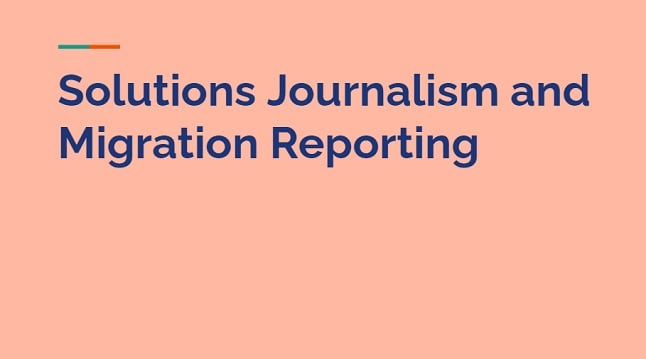The Local’s Confronting Coronavirus series is competing in the European Digital Media Awards’s Best Project for News Literacy category, against AFP’s fact check training videos and The Guardian Foundation: Education Centre and NewsWise.
The category recognises “projects aimed at enhancing news literacy skills, promote critical thinking and further the smart consumption of news”.
The winner is set to be announced by WAN-IFRA – World Association of News Publishers – on July 22nd.
The Local’s nine European news sites have together published nearly 8,000 articles about the pandemic to date. In our Confronting Coronavirus series, our journalists took an in-depth look at our countries’ pandemic responses through a Solutions Journalism lens.
Solutions Journalism is evidence-based journalism that moves from reporting only on the problem to looking at what possible solutions exist, things people are doing to try to make things better and how these solutions are working – and what’s not working.
The series was supported by a $5,000 grant from the Solutions Journalism Network, a non-profit organisation dedicated to rigorous and compelling reporting about responses to social problems. Thanks to this grant, articles in the series were free for other media outlets to republish under a Creative Commons licence.
The Confronting Coronavirus was published in the summer of 2020. You can read all articles in the series here, as well as a couple of articles published after the grant period ended.
As well as the Solutions Journalism Network, we are grateful for our community of paying members. If you would like to support The Local in our goal to provide essential and responsible English-language reporting from across Europe, find out more here.
Here are all the finalists in the European Digital Media Awards 2021:
Best News Website or Mobile Service
- belfasttelegraph.co.uk – Belfast Telegraph, United Kingdom
- Real Stories Worth Paying For – Irish Independent, Ireland
- Your Climate Future – Norwegian Broadcasting, Norway
Best Paid Content Strategy
- +Alt: All News in One Subscription – Amedia AS, Norway
- Membership model – elDiario.es, Spain
- Using cross-platform digital content universes to build and grow subscription audiences – Dagens Næringsliv – The Norwegian Business Daily, Norway
Best in Audience Engagement
- Fantasy Fund – Dagens Næringsliv – The Norwegian Business Daily, Norway
- Community Journalism, FT – Financial Times, United Kingdom
- F.A.Z. Personal Assistant – Frankfurter Allgemeine Zeitung, Germany
Best Project for News Literacy
- AFP Fact Check training videos – AFP, France
- The Guardian Foundation: Education Centre and NewsWise – The Guardian Foundation, United Kingdom
- Confronting Coronavirus: How The Local used Solutions Journalism to explain Europe’s pandemic response – The Local Europe, Sweden
Best Digital Marketing Campaign for a News Brand
- Arab News En Français – Arab News, United Kingdom
- “What the….”? – Verdens Gang AS, Norway
Best Use of Online Video
- Arabic calligraphy: Ancient craft, modern art – Arab News, United Kingdom
- MOON BASE – Rossiya Segodnya, Russian Federation
- Tarjei’s experiment – VGTV, Norway
Best Data Visualisation
- Divide Germany (again) and discover the differences – Funke Media Group, Germany
- Trading places – TASS Russian News Agency, Russian Federation
- The Corona Live Tracker – Verdens Gang, Norway
Best Special Project for Covid-19
- The Kingdom Vs COVID – Arab News, United Kingdom
- COVID Kingdom – Reuters, USA/UK
- The Corona Live Tracker – Verdens Gang, Norway
Best Digital Audio Project
- Cry Like A Boy – Euronews, France
- F.A.Z. Audio – Frankfurter Allgemeine Zeitung, Germany
- Le Mur des Podcasts – Ouest-France, France





 Please whitelist us to continue reading.
Please whitelist us to continue reading.
Congrats!
Congratulations on the nomination for European Digital Media Awards 2021! Your reporting and analysis features, “explainers”, etc. have been so helpful to me the past three years. You are my first stop – primary source – in many cases.
So, does that mean my subscription amount goes up? 😉 I’m joking around, of course. But, I will certainly send a little extra to you just because. I am constantly referring people to your site, so hopefully that will raise your profile, at least throughout my friends and colleagues.
Congratulations! Under the pandemic, how much you have helped me! I can not even think surviving without your news.